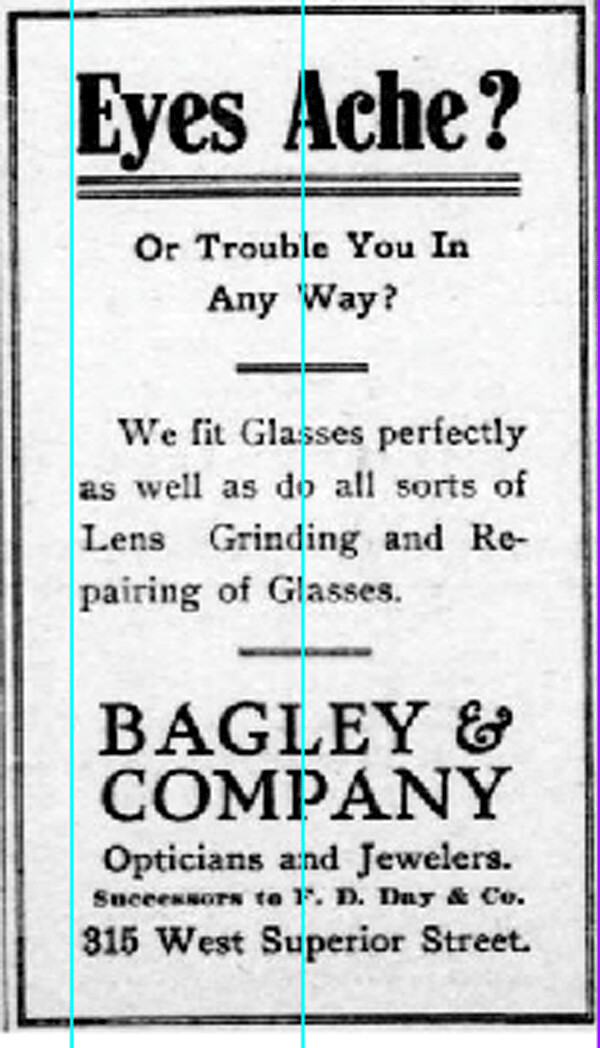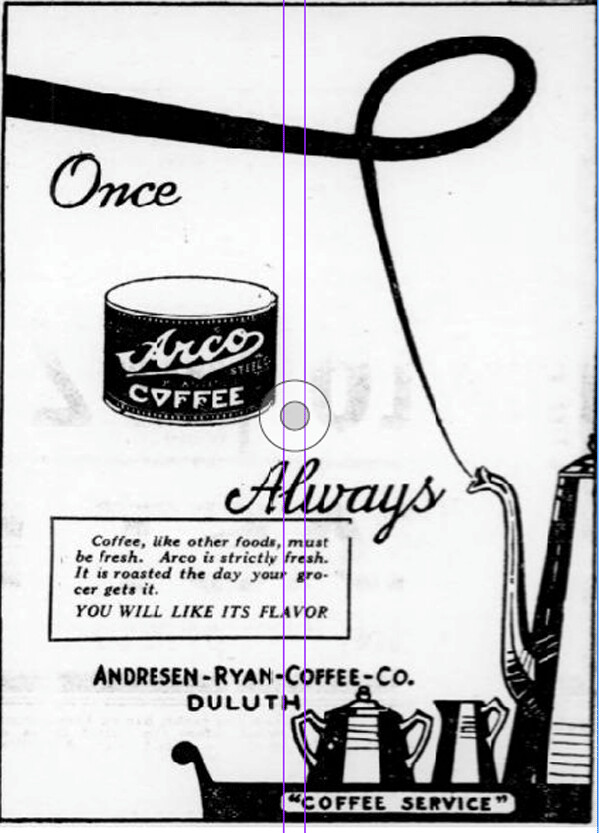This Week in History

Duluth Evening Herald
March 10, 1888
Probably one of the first things that the new council will order done this spring will be the paving of Superior street. It is generally conceded that the kind of pavement best adapted to the present needs of this street is cedar block and there is no necessity for delay in the work as soon as the weather will permit of its being commenced. It is estimated that fully $1,000,000 will be expanded this year on public improvements.
Duluth Evening Herald
March 11, 1895
CITY BAND CONCERT.
It Will be Given on Next Thursday Evening at The Temple. On Thursday evening the first concert of the Duluth City band will be given at the Temple. This is the new organization formed by the members of Ernest Meier’s City band. They have incorporated under the name Duluth City band. This concert is to be given for the purpose of securing funds for purchasing some needed instruments and music. All the music and some of the principal instruments in the former band were the property of Mr. Meier. The musicians, in organizing this band, do not expect to make anything more than expenses out of it, for no band has ever made anything here, but in doing so they were actuated by the same spirit of loyalty to Duluth which every business man displays.

Duluth Evening Herald
March 9, 1909
HOUSE VOTES AGAINST ABOLITION OF CAPITAL PUNISHMENT IN STATE
Flood of Oratory Against The Bill to Abolish Hangings.
St. Paul, Minn. (Special to the Herald) – By a vote of 35 to 31, the house this morning went on record against the abolishment of capital punishment, indefinitely postponing the Bendixen bill, which provided that hereafter there should be no more hangings in this state.
Representative Bendixen, author of the bill, talked earnestly in favor of it, and Representative George A, MacKenzie of Gaylord, who introduced a similar bill four years ago, spoke eloquently and potently against the practice of judicial murder, against which he protested in the name of humanity and of civilization. All the other speeches – and there was quite a flood of oratory – were against the bill. Frank White said he didn’t believe in it, unless it could be provided that there should be no pardons for murders.
Bicknell thought it might be all right, if it could be amended so that the jury trying a murder case could secure the death of the accused if it deemed the crime so atrocious as to make it proper. Thayer said Cole Younger making merchandise of his crimes is a good example of mistaken leniency toward murderers.
Representative Grant of Duluth said criminal instincts are more or less hereditary and he thought it a mistake to let criminals go free to propagate a race of criminals.

Duluth Evening Herald
March 9, 1920
WILL RESTORE NIGHT TRAIN
Soo Road Will Resume Old- Time Twin City Service.
Restoration of night passenger traffic on the Soo line between Duluth and the Twin Cities is assured in a letter today in the traffic commission of the Commercial club. Even since the night passenger trains were eliminated by the railroad administration there has been a movement on the part of local business men and the Commercial club to have the trains restored.
A train formerly left here at 11:10 pm, another leaving the Twin cities for Duluth at the same time. The train from the Twin cities arrived at 6:30 am, but whether or not this schedule will again be put into effect the traffic commission is not advised. The Duluth Herald was one of the first to see the value of restoration of the night service and about a year ago began a campaign to have the trains put into service again. S
tories and images courtesy of the Minnesota Historical Society newspaper archives.